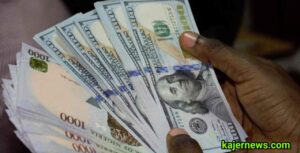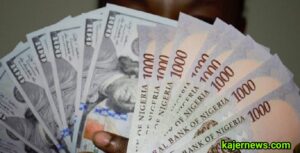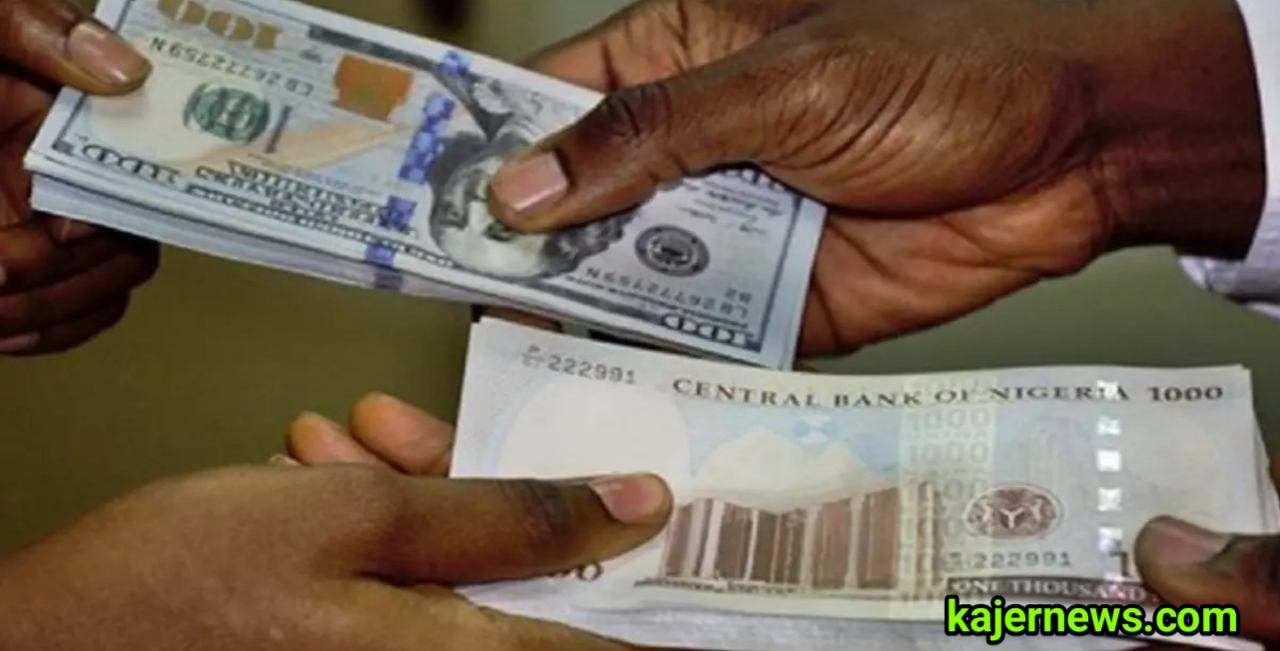Rapid depreciation of the naira continues as the NAFEM closing rate reaches N956.33/$.
On Thursday, the naira closed at a new low of N956.33 per dollar on the official market and N1165 per dollar on the black market.
At the end of business on Thursday, the official forex market, the NAFEM, showed data showing that the value of the domestic currency had dropped by 12.11% to close at N956.33 to the US dollar.
The local currency has dropped by N115.8, or 12.11%, from its closing value of N840.53 on Wednesday, marking a new all-time low, according to the Nairametrics tracker. November 9th’s record low of N996.75 was the most recent all-time low.

N1136/$1 was the intraday high and N615/$1 was the intraday low, indicating a broad variation of N521/$1.
Data from the official NAFEM window indicates that at the end of trading, there was $105.50 million in forex turnover, which was 46.77% less than the day before.
Similar to this, the naira lost value at the unofficial parallel forex market, where currency is sold. Peer-to-peer traders quoted an exchange rate of about N1148.44/$1, while the official market saw a 1.29% depreciation in the value of the naira.
What the professional says
In the midst of the Naira’s increasing depreciation on both the official and unofficial Nigerian Foreign Exchange Markets, analysts had urged the Central Bank of Nigeria (CBN) to dedollarize the economy by outlawing local transactions denominated in US dollars.
Dr. Biodun Adedipe, the founder and chief consultant of B. Adedipe Associates Limited (BAA Consult), discussed tactics that the CBN should employ to prevent government agencies from billing local operators and entities in US dollars.
He also said that local refineries should be paid in Naira instead of US dollars for the crude oil they sell.
Post-ad continues with news.
“CBN should deal transparently with participating banks at the I&E Window,” stated Adedipe. De-dollarize the economy by outlawing any local transactions in US dollars, such as asset sales, rent or lease payments, and other services like medical bills and school fees.
You should also make sure that government organisations stop billing local businesses and operators in US dollars, which is fairly typical in the maritime industry.Other recommendations include making sure that Naira, not dollars, are used for the payment of crude oil to nearby refineries.
“President Bola Tinubu ought to speak directly with bank CEOs in order to solicit their input and win their support for the market reforms through moral persuasion.
Accept the fact that unified exchange rates are a bad policy option for an economy like ours that is weak and structurally flawed, just like floating the Naira is.
Home News Politics Entertainment Sports Opinion Education Health InterviewEVERYDAY POST GHANA LINKED UP WITH US INTERVIEW
Everyday Post The Daily Post of Nigeria Nigerian EnterprisesNaira strengthens on the forex market versus the dollar.Posted on November 25, 2023Written by Ariemu Ogaga
At the foreign exchange market on Friday, the value of the Naira, the currency of Nigeria, increased in relation to the US dollar.
The Naira strengthened from N956.33 on Thursday to N794.89/$1 at the end of business on Friday, according to official data from FMDQ.
With respect to the N956.33 it closed on Thursday, this indicates a gain of N161.44, or a 20.31 percent increase, at the official forex market.
The currency of the nation has increased for the first time since Monday, according to DAILY POST.
This occurs in spite of the fact that the nation’s forex turnover at the end of trading was $75.82 million, down 28.13% from the day before.

Speaking on Friday at the Chartered Institute of Bankers of Nigeria (CIBN) 50th anniversary event, Governor of the Central Bank of Nigeria (CBN), Dr.
Olayemi Cardoso, stated that the fluctuating exchange rate was impeding the growth of businesses and pledged to be open and equitable to all as the bank carries out its duties.
In the medium run, it is projected that the economy will benefit from the elimination of the petrol subsidy, the implementation of a floating exchange rate, and other government initiatives.
He said, “I’m confident and optimistic that we can address fundamental flaws and restore macroeconomic stability by taking appropriate corrective actions and strategic steps.”
Remember that Cardoso missed the second meeting in two months of the Monetary Policy Committee?
Since the CBN implemented reforms in June of this year, Nigeria’s foreign exchange market has remained in a state of crisis.
On Thursday, the official Investor and Exporter forex window saw a naira decline to N956/$ due to a 46.77 percent decline in the dollar supply.
Based on data from the FMDQ Securities Exchange, the naira closed trading on Wednesday at N840.53/$, a decline of 13.78 percent.
Additionally, the market’s dollar turnover decreased from $198.21 million on Wednesday to $105.50 million.
The naira started the day’s trading at N800.90/$ and rose as high as N1136/$ and N615/$. At N956.33/$, it finally closed trading.
Live updates for the gubernatorial election
Naira strengthens to N950 as it continues to recover.
In seven months, forex turnover on FMDQ reached N22 trillion.
Parents of students studying abroad are under extreme pressure due to the forex crisis.
Despite recent efforts by the Central Bank to clear the backlog of foreign exchange forward contracts, the naira’s instability has continued.
According to recent data from the World Bank, the naira is among the worst-performing currencies in the world, having lost nearly 40% of its value since June.
The Economist Group’s research and analysis branch, the Economic Intelligence Unit, recently revealed that the CBN lacks the necessary resources to clear the backlog of foreign exchange orders. It is anticipated that this will keep the naira under pressure.
It read as follows: “In Nigeria, an unsupportive monetary policy suggests that the naira will continue to face pressure, and the central bank is weakly equipped to sufficiently supply the market or clear a backlog of foreign exchange orders, which will continue to unsettle international investors.
Frequent devaluations of the exchange rate regime will arise from high inflation and the parallel market’s ongoing expansion.




